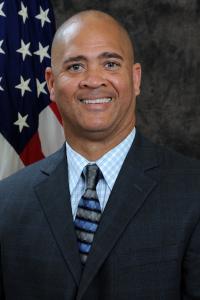For New FDA Associate Commissioner, the Work of Protecting Public Health is Personal
Associate Commissioner for Regulatory Affairs
The FDA office responsible for conducting inspections and investigations—screening, scrutinizing, and helping oversee the safety of foods and drugs in this country—has a new leader. Named to the position last month by Commissioner Dr. Robert M. Califf, 32-year-veteran of the agency Michael C. Rogers, a former Baltimore-based FDA investigator and son of a former ORA district director, says he’s as inspired by the personal impact the agency has on the public as he is by the science, hard data analysis, and gritty investigational efforts being carried out on its front lines.
Ever since he can remember, Rogers has been attuned to the work of ORA—the FDA’s field-based contingent of inspectors, investigators, law enforcement agents, and scientists who work around the country, and often the clock, shielding Americans from unsafe foods and medical products. These same teams, working at borders, ports, mail facilities, satellite laboratories, and other locations globally, also expedite the flow of safe foods and drugs and other medical products across the United States so those in need can access critical foods, and life-saving medicines, vaccines, medical devices, and blood and other living tissues when they need them.
ORA’s regulatory activities, little seen or realized by most Americans, were a familiar backdrop and topic of conversation in the Rogers household. Rogers’ father, first an analytical chemist for the FDA, then a District Director at its Kansas City-based laboratory, also moved the family to Nigeria during a stint with the United Nations to help stand up that country’s first food safety laboratory.
Michael easily recalls his father’s passion for leveraging the latest science to fortify U.S. food safety systems.
“I still remember him showing me this RV-style lab on wheels that could be deployed anywhere to test the safety of foods,” he said.
Rogers’ own FDA story, which includes an episode as an investigator years ago, dumpster-diving to secure evidence needed to support a pharmacy drug diversion case, isn’t necessarily common in the federal government.
After several years leading boots-on-the-ground inspections of food, drug, and other medical product facilities in the United States and abroad as an investigator and supervisory investigator, Rogers was promoted to Deputy Director for ORA’s Office of Regional Operations, and then, Director of the agency’s Division of Field Investigations. In 2011, he and his family moved to Costa Rica, where Rogers led FDA’s Latin America Regional Office for four years before returning to the Washington, D.C., area to serve as ORA’s Senior Advisor for Medical Products, and then, in 2018, as its Assistant Commissioner for Human and Animal Foods.
His hard-won ascent from field trainee to the seat of Associate Commissioner for Regulatory Affairs, or ACRA, where he now serves as a close advisor to Califf, is a point of pride for Rogers and one appreciated by his staff. In his first town hall meeting as ACRA, he invoked what’s become one of his favorite refrains: “I am an example that you can get here from wherever you are in our organization.”
Like many public servants wedded to a profoundly important mission, Rogers is no stranger to personal sacrifice. But it’s his family, his wife and three boys, who compel his work more than anything else could. When his son, about four at the time, lay in a hospital bed in need of a serious operation, Rogers felt anxious—as a parent, of course, but as a public health regulator too.
“I remember having a moment of pure presence,” he said, “where I'm looking around the hospital room, at all the devices and things that are going to be used on my child, and fully recognizing just how much our agency is responsible for.”
He knows well that the agency’s actions are integral to making certain that what the public eats, drinks, and relies upon, from a health standpoint, in the form of drugs, vaccines, surgical instruments, x-rays, defibrillators, pacemakers, stents, and numerous other medical products, meet the highest criteria for safety and effectiveness.
He encourages staff to strive always to do their professional best, while also remembering the work is deeply personal, affecting millions of American families, every day.
“All of us,” he tells staff, “no matter who we are in the organization, will find ourselves the recipients of the same public health standards and protections that the American people expect of us.”
Rogers looks forward to leading at a pivotal time in the organization’s history with top priorities including foodborne illness prevention; development of AI tools for targeting unsafe foods into the United States; the battle against health fraud, illegal opioids, and other drugs; the expansion of partnerships for bolstering the agency’s many federal, state, local, tribal, and territorial safety nets; and a continual striving to set the bar, globally, for standards in public health-protecting field operations.

